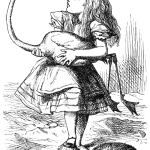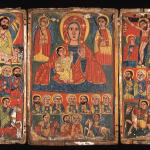Last updated on: November 3, 2016 at 1:07 pm
By
CNA Daily News
Vatican City, Nov 3, 2016 / 07:07 am (CNA/EWTN News).- On Nov. 6 a special Jubilee for Prisoners will be celebrated at the Vatican, drawing detainees and their families from around Italy and beyond to St. Peter’s Basilica for Mass with Pope Francis and a special reception after. “For the first time it will be possible for a large number of detainees from different parts of Italy and other countries to be present in St. Peter's Basilica to live the Jubilee with Pope Francis,” Archbishop Rino Fisichella said Nov. 3. “We know that the Pope takes great care of detained persons,” he said, noting how in each of his trips abroad Francis “has repeatedly wanted to visit prisoners and leave the detained a message of closeness and hope.” Fisichella, president of the Pontifical Council for the Promotion of the New Evangelization, spoke to journalists at the presentation of the Jubilee for Prisoners, as well as that of the Nov. 13 Jubilee for the Socially Marginalized, set to coincide with the close of the Holy Door of St. Peter’s Basilica, marking the end of the Jubilee of Mercy. The Jubilee of Prisoners, intended above all for prisoners and their families, penitentiary employees, prison chaplains and various associations that assist both inside and outside of the prison system, will take place Nov. 5-6 in Rome and is part of Pope Francis’ wider Jubilee of Mercy. Currently 4,000 people have signed up for the Jubilee, of which 1,000 are prisoners from 12 countries around the world including England, Italy, Latvia, Madagascar, Malaysia, Mexico, the Netherlands, Spain the United States, South Africa, Sweden and Portugal. Although the majority of prisoners attending come from Italy, there will be a Lutheran delegation present from Sweden. Around 50 prisoners and ex-prisoners will be coming from the U.S., including a group of 22 from Cincinnati. Inmates of all types will be included among the crowds, including minors, people on house arrest, and with varying sentences for an event that offers “a future and hope other than condemnation and the length of the sentence,” Fisichella said. Though Pope Francis has repeatedly called for an end to the death penalty, including during his 2015 visit to the U.S., and has in the past taken a special interest in individual cases of death row inmates, there will be none present during the Jubilee event. Celebrations for the Jubilee of Prisoners will begin Saturday, Nov. 5, with Eucharistic Adoration and Confessions in the Roman churches of S. Salvatore in Lauro, S. Maria in Vallicella (Chiesa Nuova), S. Giovanni Battista dei Fiorentini. The day will conclude with pilgrimages to the Holy Door. On Sunday, Nov. 6, St. Peter’s Basilica will open at 7:30a.m., and beginning at 9a.m., testimonies will be given by various participants in the event. The testimonies will include a prisoner who will share their experience of conversion and will speak alongside their victim, with whom they have reconciled; the brother of someone who was murdered who will talk about mercy and forgiveness; a young man currently serving a sentence and an agent of the Penitentiary Police, who is in daily contact with the prisoners. All tickets for the Mass are, as usual, completely free of cost, and there will be no ticket required for the “Reception Celebrating Mercy” in the Vatican’s Paul VI Hall after. An exhibit of various products and items made inside prisons is also being planned, and will be located at Castel Sant'Angelo, which sits at the end of the large street leading up to the Vatican, called Via della Conciliazione. During Mass, it will be the prisoners themselves who conduct the liturgy. The hosts used during Communion were also made by prisoners of the Opera maximum security prison in Milan as part of “The Meaning of Bread” project organized for the Jubilee of Mercy. In his comments to journalists, Archbishop Fisichella said the prisoners coming were chosen by the bishops conferences and prison chaplains. Participating in the Jubilee for Prisoners was proposed to them by the Vatican, he said, explaining that by attending, they have “responded to the invitation of the Pope.” He said no special security measures are being taken given the special nature of the Jubilee, but that the event will move forward “like normal.” When it comes to transporting prisoners from around Italy and other countries, the archbishop said that each country has their own laws and regulations for how it will be done. The Jubilee for the Socially Marginalized, on the other hand, will take place Nov. 13 and is intended for people who, “for different reasons, from economic precariousness to various diseases, from loneliness to a lack of family ties, have difficulties inserting themselves into the fabric of society and often end up on the margins of society, without a home or a place to live.” Nearly 6,000 people have signed up from countries around the world including France, Germany, Portugal, England, Spain, Poland, the Netherlands, Italy, Hungary, Slovakia, Croatia and Switzerland. Celebrations will begin Friday, Nov. 11, with an audience with Pope Francis in the Vatican’s Paul VI Hall, during which the Pope will listen to testimonies and speak with them. Testimonies will also be given in various parishes around Rome throughout the day. On Saturday, Nov. 12, a vigil will be held at the Basilica of St. Paul Outside the Wall, during which attendees can pass through the basilica’s Holy Door. A concert will also be held that night in the Paul VI Hall. The event will close Sunday, Nov. 13, with a Mass celebrated by Pope Francis. On the same day, the Holy Doors in the papal three major basilicas of Rome – St. Mary Major, St. Paul Outside the Wall and St. John Lateran – and those in dioceses throughout the world will be closed, marking the coming end of the Jubilee of Mercy. The Holy Door in St. Peter’s will be closed at the Nov. 20 conclusion of the Holy Year. In his comments to journalists, Archbishop Fisichella said that to close the Holy Doors “does not exhaust the commitment of the Church, but in the light of the Jubilee experience, strengthens her witness.” Referring to the Jubilee for Prisoners and Marginalized persons, he said “we are certain that these two Jubilee events will be lived with the same intensity and experience of prayer with which we have seen the entire Jubilee (of Mercy) be celebrated.” The two events, he said, are “a meaningful horizon of the jubilee program which looks forward to Nov. 20 with serenity and trust.” Read more















